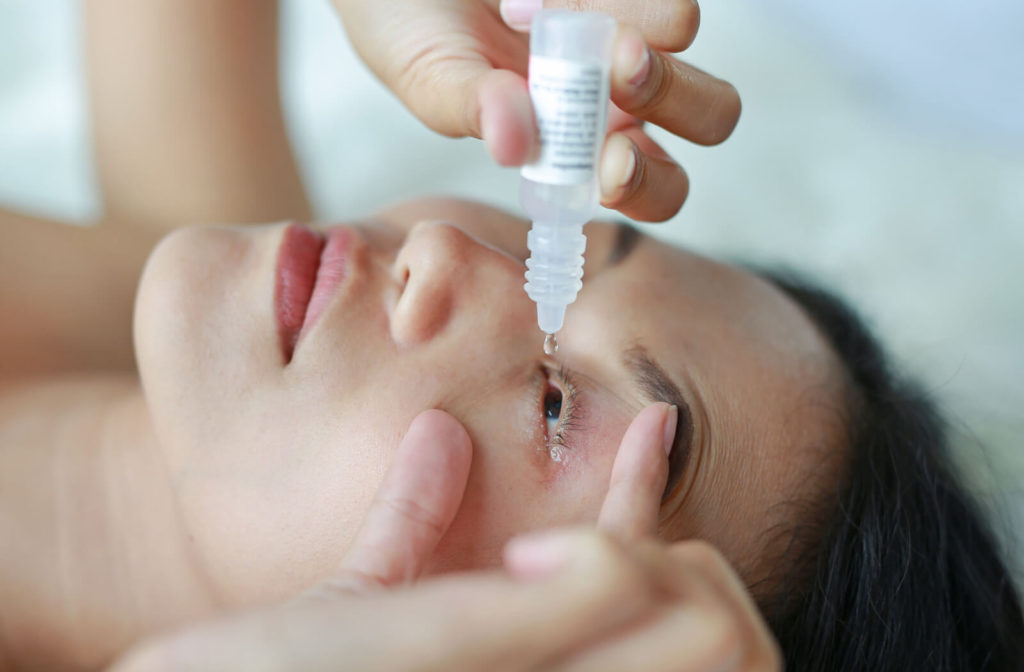There are various different methods of treating myopia—can it be treated with eye drops?
While glasses and contact lenses are common myopia control methods, there are other ways to manage myopia, such as atropine eye drops. Atropine eye drops can help slow down the progression of myopia in children and adolescents.
What Is Myopia?
Myopia, commonly known as nearsightedness, is a vision condition that affects a significant portion of the global population.
Myopia develops when the eyeball is too lengthy or the cornea, which is the clear front surface of the eye, is overly curved. As a result, light entering the eye is not properly focused, and distant objects appear blurry.
All About Atropine
Atropine is a medication derived from the belladonna plant, and it belongs to a class of drugs known as antimuscarinics. Historically, it has been used in ophthalmology to dilate the pupils during eye exams or to treat eye inflammation. However, more recently, atropine has gained attention for its potential in controlling myopia.
How Do Atropine Eye Drops Work?
Atropine works by inhibiting the action of acetylcholine, a neurotransmitter responsible for pupil constriction and focusing the eye for near vision. By dilating the pupils and temporarily paralyzing the eye’s focusing muscles, atropine essentially reduces the eye’s ability to accommodate or adjust its focus for close-up tasks.
Myopia Management with Atropine
Studies have shown that atropine, when used in low concentrations, can help slow down the progression of myopia in children. The exact mechanism is not fully understood, but it is believed that atropine may influence the growth of the eyeball, which is a key factor in the development of myopia.
Different Concentrations of Atropine
Atropine eye drops are available in various concentrations, typically ranging from 0.01% to 1%. Lower concentrations, such as 0.01%, are often preferred for myopia control due to their effectiveness in slowing down progression while minimizing side effects like light sensitivity and blurred vision.
Considerations & Side Effects
Atropine eye drops are generally safe to use, but like any medication, they can have side effects. While atropine shows promise in managing myopia, it’s important to note that its use should be carefully monitored by an eye care professional. Higher concentrations may lead to more side effects, including sensitivity to light, blurred vision, and difficulty focusing on close objects.
Does Atropine Slow Myopia Progression?
In 2006, a study on atropine’s effect on myopia progression revealed that atropine had a significant impact on reducing myopia progression by 77% compared to the control group.
Since then, the interest in atropine as a form of treatment for myopia progression has soared. However, it is imperative to note that atropine therapy is considered off-label use by the Food and Drug Administration (FDA) in the United States, meaning that the FDA has not yet approved atropine for myopia treatment in the US, although it is commonly prescribed by ophthalmologists.
It is also vital to note that while atropine is effective in slowing myopia’s progression, it is not a cure. It is recommended that atropine therapy is combined with other options like orthokeratology, an adaptive contact lens that reshapes the cornea while you sleep.
Evidence has shown that combining orthokeratology and atropine therapy can result in better outcomes and reduce the risk of myopia progression.
How to Use Atropine Eye Drops?
Atropine eye drops should only be used as prescribed by a doctor. The typical dosage for children with myopia is 1% atropine, which is applied to the eye once a day.
Atropine eye drops are best used at night, as they can cause blurry vision and sensitivity to light. The medication can take a few weeks to start working, so it’s important to continue using it as directed.
If you have any questions or concerns about how to use atropine eye drops, speak to your doctor.
Benefits of Atropine Eye Drops for Myopia
The main benefit of using atropine eye drops for myopia is that it can slow down the progression of the condition.
Myopia can lead to many complications, such as cataracts, glaucoma, and retinal detachment. Treating myopia early can help lessen chances of developing myopia-related conditions later on in life.
The Importance of Regular Eye Exams
Before considering atropine or any other myopia management option, it is crucial to consult with an eye care professional. Regular eye exams are essential for monitoring changes in vision and determining the most suitable course of action based on an individual’s specific needs.
Navigating Myopia Management with Atropine Drops
Atropine eye drops can be a useful tool in managing myopia in children and adolescents—they represent a promising avenue for myopia management, offering a potential means to slow down the progression of nearsightedness.
If you’re interested in learning more about atropine eye drops for myopia management, we’d love to discuss them with you. Book an appointment with the team at Crum Optometric Group to get started.





